
Copernical Team
Antarctica experiences rare total solar eclipse
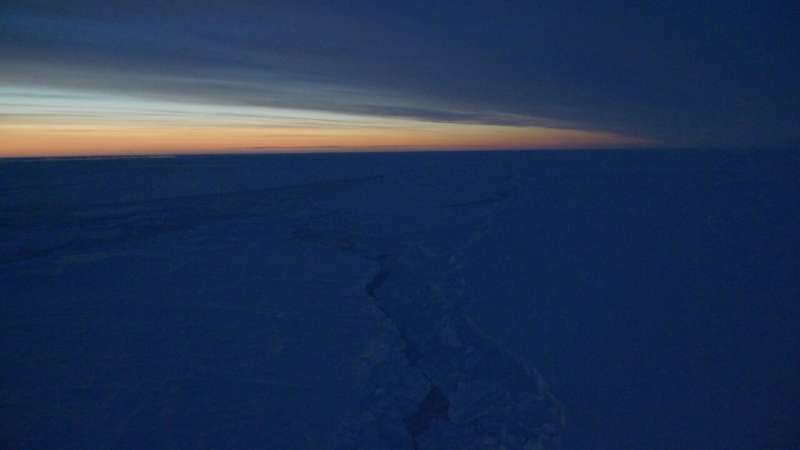
A rare total solar eclipse in Antarctica this weekend (Saturday 4 December) is giving researchers a unique opportunity to learn more about how solar eclipses affect space weather. The next total eclipse in Antarctica will not be until 2039.
The total eclipse, which happens when the sun and moon are in line with the Earth, will only be visible in Antarctica, sweeping across the Ronne ice shelf and Ellsworth land, with the rest of Antarctica in partial shadow. The maximum eclipse will be at 0733 GMT.
John Law, Antarctic Atmospheric Scientist at Rothera station says that "the team here are really excited about being able to witness the eclipse on Saturday morning. We will be setting our alarm clocks for the early hours, the maximum amount of Sun that will be hidden by the moon will be around 94% around 4am in the morning. During the summer, the sun never sets below the horizon so even at 4am we should see the effect of the eclipse.
Watch Galileo launch on night of 4-5 December
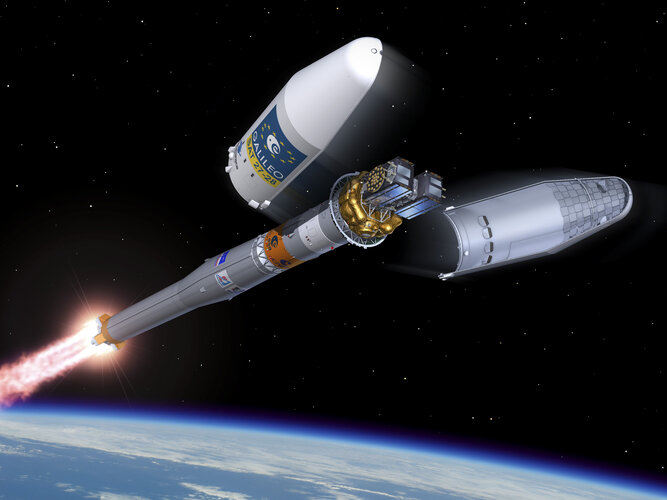
The launch of Europe’s latest Galileo satellites is now scheduled for the night of 4-5 December.
Lightweight space robot with precise control developed
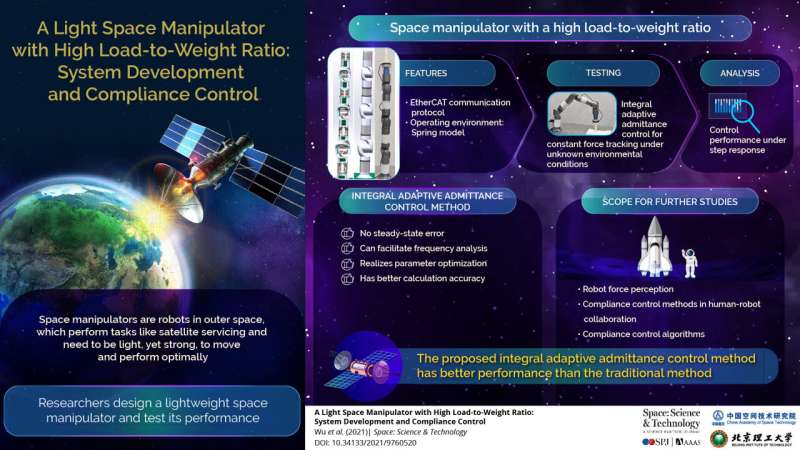
Robots are already in space. From landers on the moon to rovers on Mars and more, robots are the perfect candidates for space exploration: they can bear extreme environments while consistently repeating the same tasks in exactly the same way without tiring. Like robots on Earth, they can accomplish both dangerous and mundane jobs, from space walks to polishing a spacecraft's surface. With space missions increasing in number and expanding in scientific scope, requiring more equipment, there's a need for a lightweight robotic arm that can manipulate in environments difficult for humans.
However, the control schemes that can move such arms on Earth, where the planes of operation are flat, do not translate to space, where the environment is unpredictable and changeable.
Studying our solar system's protective bubble
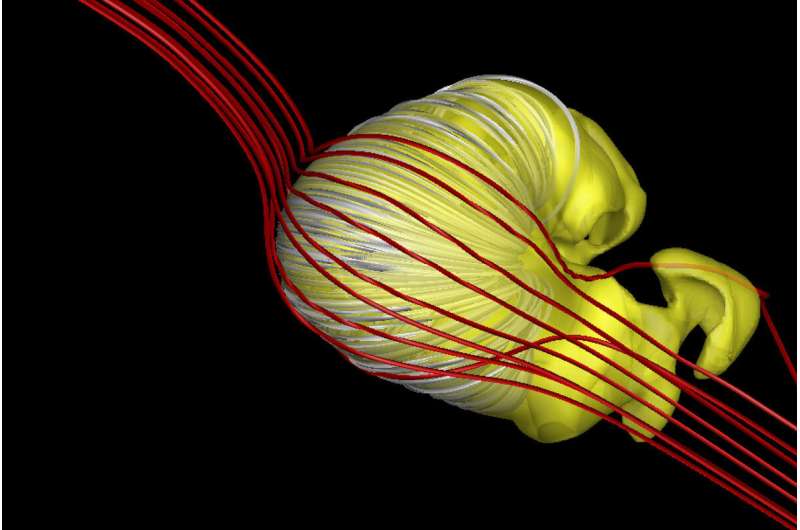
A multi-institutional team of astrophysicists headquartered at Boston University, led by BU astrophysicist Merav Opher, has made a breakthrough discovery in our understanding of the cosmic forces that shape the protective bubble surrounding our solar system—a bubble that shelters life on Earth and is known by space researchers as the heliosphere.
Astrophysicists believe the heliosphere protects the planets within our solar system from powerful radiation emanating from supernovas, the final explosions of dying stars throughout the universe.
An upcoming asteroid mission will be able to peer 100 meters under the surface
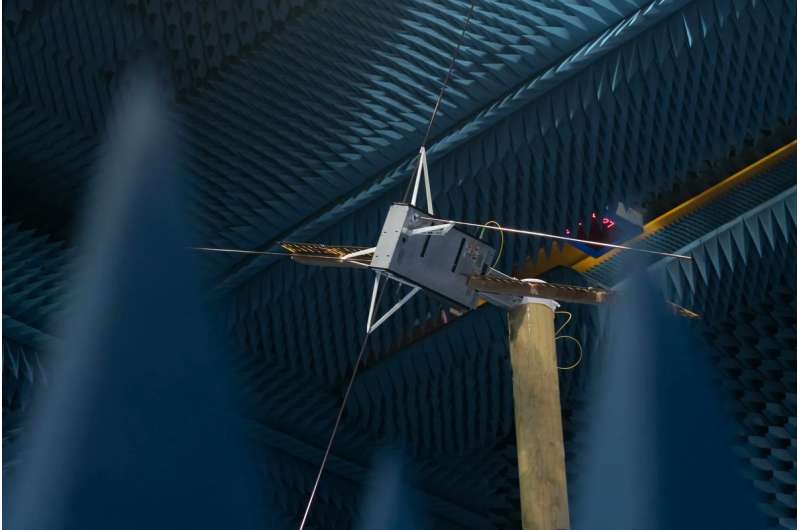
Engineers only get one shot at making a spacecraft work as intended—or at least they only get one shot in space. In the preparation leading up to that final, climactic moment, there are typically thousands of hours of tests run on numerous systems and subsystems. If all goes well, it bodes well for the mission's overall success, but if problems arise, it's much easier to address them on the ground than while a spacecraft is already orbiting. A new spacecraft model known as Juventas just completed a significant testing milestone, passing testing in a room known as an anechoic chamber.
That milestone is essential for Juventas, as its primary mission focuses on a low-frequency radar the craft will use to peer 100 meters beneath the surface of Dimorphos, the smaller partner in the Didymos binary asteroid system.
Image: Tiny crystal of power as basis for solar cell
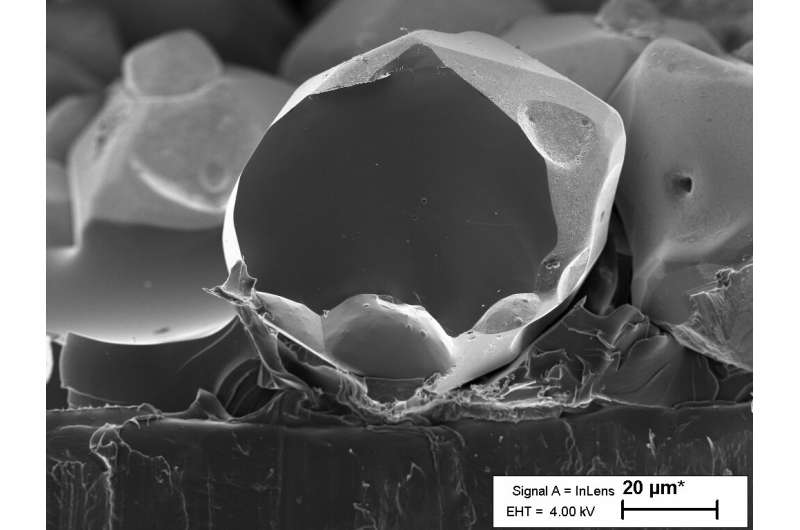
This crystal of iron pyrite, just four hundredths of a millimeter in size, could function as the light absorbing layer of a tiny solar cell—potentially a promising future source of power on the moon.
Working with Estonia's Tallinn University of Technology (TalTech), ESA has studied the production of sandpaper-like rolls of such microcrystals as the basis of monograin-layer solar cells.
"We're looking at these microcrystals in the context of future lunar settlement," explains ESA advanced manufacturing engineer Advenit Makaya. "Future moon bases will need to 'live off the land' in order to be sustainable, and the iron and sulfur needed to produce pyrite could be retrieved from the lunar surface."
Dr. Taavi Raadik from TalTech explains: "Our aim is to develop technology for pyrite microcrystal growth and to use them in a monograin layer solar cell, where each tiny crystal would work as an individual solar cell. The amount of power generated by one miniscule solar cell is small but in the normal-sized module there would be billions of them—and in principle there is no limitation in terms of their size and shape.
Video: Rover escapes from sand trap in Mars terrain simulator
The ExoMars rover used in the Earth-based Mars Terrain Simulator makes escaping from a sand trap look easy in this exercise.
The rover initially has its front two wheels almost completely buried in sand, but easily escapes using its unique wheel-walking mode.
It takes about 20 minutes to complete the 2 m drive—slow and careful being the key to getting out of a difficult situation.
Rovers on Mars have previously been caught in sand, and turning the wheels dug them deeper, just like a car stuck in mud or snow. To avoid this, the ExoMars rover Rosalind Franklin—and its replica—has a unique wheel walking locomotion mode. Similar to leg movements, wheel-walking combines motions of the deployment actuators (the legs) with the rotation of the wheels to progress without slippage. This motion gives very good traction in soft soils and high slopes, such as dunes.
"We hope to never need to use wheel walking on Mars to escape dangerous sand traps, but we are glad to have such functionality to potentially safeguard the mission," comments Luc Joudrier, ESA ExoMars Rover Operations Manager. "From a rover operational point of view, this is really our insurance again difficult terrains."
In the test run seen here, the back wheels drag once the front four wheels have gained good traction on firmer terrain.
ESA's Mars Express unravels mystery of martian moon using 'fake' flybys
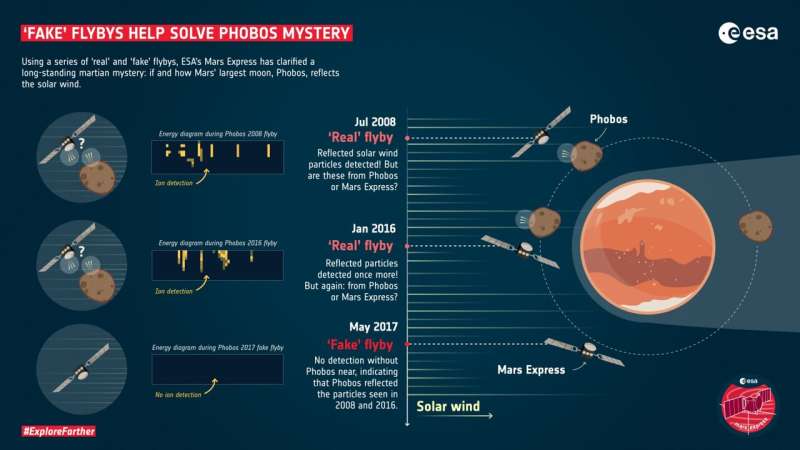
Webb stickers for Ariane 5 fairing
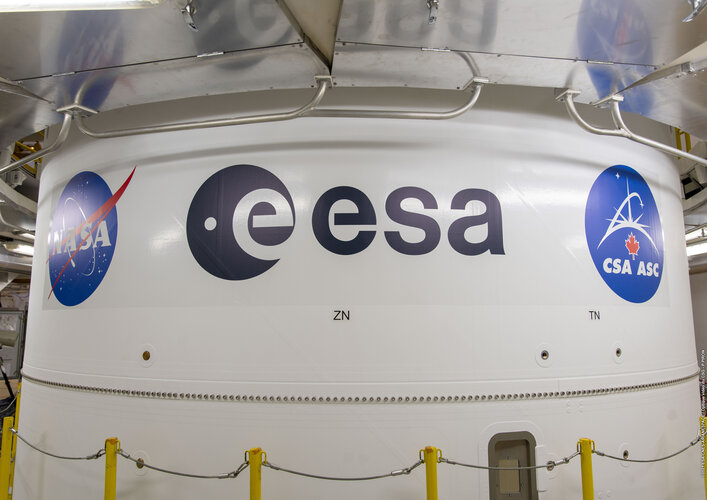 Image:
Webb stickers for Ariane 5 fairing
Image:
Webb stickers for Ariane 5 fairing Week in images: 29 November - 3 December 2021
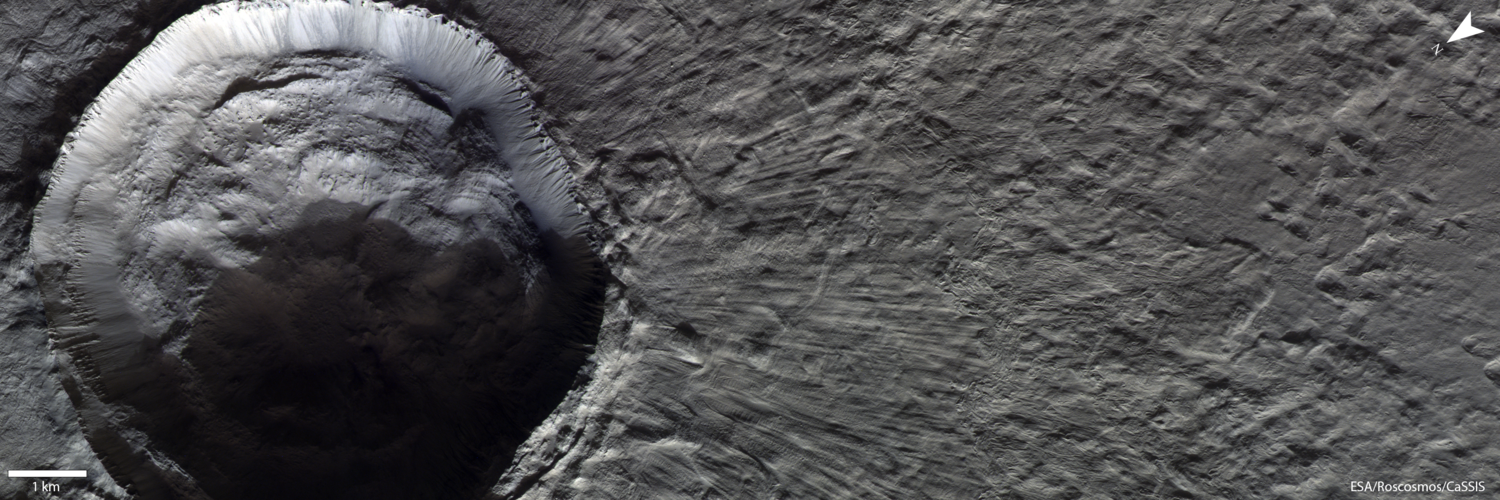
Week in images: 29 November - 3 December 2021
Discover our week through the lens

